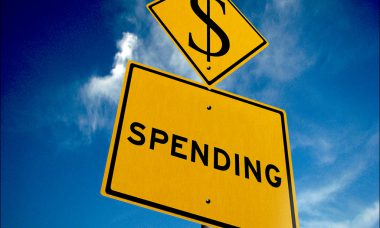
by admin | Bankruptcy, Consumer Proposal, Credit Counseling, Credit Repair
Credit card companies and banks look at your credit score while making the decision to lend you money. Your credit score reflects your ability to return credits. It is a number that depicts the likelihood of you repaying money without struggling.
Lenders check your credit history in order to calculate your credit score in Canada. If your credit score is low, they will see this as a risk for lending you money. Different companies have different criteria to assess the level of risk by looking at your credit score.
There are many things that can damage your credit score in Canada, such as delayed payments of bills, applications for a large number of credit cards, etc.
In case of a low credit score, you should first check the information available in your credit report. That information must be correct. If not, contact the responsible authorities. If the information is correct, the next thing you should be doing is thoroughly and carefully reading the report to assess what factors are causing a decrease in your credit score and how you can improve them.
Here are a few tips that can help you improve your credit score in Canada.
Pay your bills on time
You should always be careful about the time you take to pay your bills. Delayed payments of bills can negatively influence your credit score in Canada. Although your credit report does not have records of the payments of your utility bills such as phone, electricity, and cable, there are some mobile phone companies that may inform the credit-reporting agencies about your late payments, which could negatively affect your credit score.
Clear your debts quickly
You should be looking to pay off your debts as soon as possible. Prolonged and accumulated debts have a bad influence on your credit score in Canada.
Be watchful of your credit card limit
Avoid going overboard with your credit card expenses. Do not cross the credit limit on a credit card, no matter what. Your balance should always be well below the limit of your credit card. Higher balance has more chance of affecting your credit score in Canada.
Prioritize the payments you have to make
Canadian credit reports do not generally include mortgage payments, although they are very important. So, it’s smart if you prioritize clearing your credit card, lease, and loan payments first and on time. This will help you maintain a good credit score in Canada.
Limit your credit applications
You should be careful about the number of applications you make. You must avoid making too many credit applications. Too much inquiry from the potential lenders about your credit can negatively affect your credit score in Canada. However, the credit score is not affected if you have queries regarding your own credit report.
Have a credit history
One of the reasons for one’s low credit score in Canada is the absence of credit history. Make sure that you have a proper record of the debt you owed and the payments you made back. Credit history can be built using a credit card.
Maintaining a good credit score is important and has its benefits. By implementing the above-mentioned tips, you can ensure a better credit score in Canada.

by admin | Bankruptcy, Consumer Proposal
Debt is something that comes with lots of complications and negativity. Still, some people find debt as a way of living. Sometimes, debts can get so excessive that no matter how much you try, you just cannot pay them off, which leaves you with the only option of declaring bankruptcy.
Better financial management throughout your life can make you avoid living off debts. Even if you acquire debts for some important reasons, you need to ensure efficient debt management in order to prevent yourself from bankruptcy.
Bankruptcy can provide total financial relief in some cases, but mostly, bankruptcy can cause some other complications, such as very poor credit score, inability to file for mortgages soon after a bankruptcy discharge, and more. Therefore, you must look to avoid bankruptcy at all costs.
Here are 7 essential tips on avoiding bankruptcy.
1. Sell your assets
Selling your assets is the first thing you should be doing as soon as you see signs of you not being able to make regular debt payments. These assets can be anything – jewelry, furniture, other household items, etc. Sell them and use the money to pay off debts in order to avoid bankruptcy.
2. Pay off high-interest debts first
You need to be smart with your approach towards paying off your debts. Prioritize your debts with respect to the interest rate. Try paying off those debts first that have a higher interest rate, with the money you acquire by selling your assets or some other means. Your debt management knowledge will come into play here.
3. Cut down unnecessary expenses
Take a good look at your monthly household expenses. If you want to avoid bankruptcy, cut down any such expense that you can do without, such as cable TV. Once your financial crisis passes, you can always get back to your original lifestyle.
4. Ask creditors for help
Another thing that you must do in order to avoid bankruptcy is to talk to the creditors, especially credit card companies. Explain your situation to them and ask if they could reduce your monthly debt payments.
5. Look for credit counseling
You can avail of the services of a credit counselor if your efforts of talking to the creditors go in vain. The credit counselor you choose should be a bankruptcy expert and must help you avoid bankruptcy and perform effective debt management.
6. Seek help from family and friends
In times of such a crisis, you can look towards your friends and family for help, even though it is normally a bad idea. Ask them to lend you some money.
7. Try to settle with debt collectors and creditors
The truth is that the lenders will look to get something from you rather than nothing. Negotiate with them and ask to reduce the debt by 40 to 60 percent, which they would not be getting if you go bankrupt. This is an important step if you want to avoid bankruptcy.
The consequences of bankruptcy can be really harmful to your credit score and finances. Once you implement the above-mentioned tips, you should be able to avoid bankruptcy.

by admin | Bankruptcy, Consumer Proposal, Credit Counseling, Credit Repair
Credit world is a risky world. You need to be careful with your moves, as they are all recorded and can be used against you when necessary. Your bad credit habits and credit mistakes become a huge problem, if not addressed at the right time.
If you are new to the credit system or simply do not have the habit of maintaining your cash wisely, it can be an unfavorable situation for you. Is it never too late to learn? No, not in the credit world! The sooner you learn what credit mistakes you need to avoid, the sooner you will arrive at the safe side of the shore.
Not organizing your expenses and bills
As we said, everything is recorded and reported in the credit world. Your credit history matters the most, and you don’t want anything to stain it. However, if you are not habitual of being on time, you will probably end up with a bad record.
Make sure that you pay all your bills on time and separate your expenses so nothing becomes an obstacle in your next payment. There are many services available online that allow you to arrange your bills and expenses accordingly, with timers and calendars and calculate the amount for every payment. Use them and do not make the mistake of being late. Time is money here – literally!
Being ignorant to the interest charges and rates
It is not wise to not be aware of how much interest you are being charged on every transaction you make and at what rate. Whenever you go for getting a credit card, you must make sure the rates you are being charged, so you can compare it with the other options you have. In addition, it also helps when you are taking a loan. You would not want to be stuck in a loan that charges more interest rate than the other option you could have chosen.
Keep your credit limit down
It is like not being given enough money in hand, just so you will not spend it all at once. What happens is, when you know you have a greater credit limit, you are tempted to make more purchases, and that too recklessly, with a hope that you will somehow deal with it later. Do not do that. Do not fall into the trap of credit card companies, which lure you in by offering higher credit limit.
Giving your credit card to someone else to use
Trusting someone with your credit card is actually a stupid and risky thing do. When you lend your credit card to someone to use, they will make purchases that you will not have any control over. They might not be aware of the interest charges and the rates that comes with each type of transaction. All of this combined will become a problem for you, and if they make any purchase that are illegal, it is you who will have to bear the consequences.

by Ajay oberoi | Bankruptcy, Consumer Proposal, Credit Counseling, Credit Repair, Debt Management
Getting up after you have fallen is relatively easy than getting back up after you have gone bankrupt. It is the accumulation of all your bad credit habits and mismanagement over the time that has finally come alive to eat you up – and it did. The only way out is to file for bankruptcy, which is not an easy way out. However, it is not a difficult situation to stay at, only if you understand the process and have enough patience to let it all pass. It may seem overwhelming and daunting to re-establish your credit profile all over again, to attain a good credit rating and to regain your lost confidence.
If you know how to see the wisdom behind all the happenings, you would see bankruptcy as a fresh start, a second chance to avoid repeating the same mistakes and to prove yourself in front of the credit world. Your second chance can be very rewarding if you plan and strategist what your next step would be. You do not want to go wrong now. Which is why there are 3 steps that you need to take after filing bankruptcy.
Stop letting your mistakes haunt you
This is the first and the most important step before you go any further. You cannot allow your mistakes, even blunders, to keep haunting you and mocking you back. It will only eat away your confidence and you will feel stuck in the place you have landed. It clouds the way ahead and does not let you see the opportunities that you seize. The right attitude here will as your armor. You need it.
A lifestyle change
The next step is obvious; you cannot keep living the way you did before. Your lifestyle must change to accommodate your current financial situation, a situation that will take time to get better. Cut down your unnecessary expenses. Identify your necessities and essential expenditures. Cut down on luxuries to save money in order to pay off your debts. If you have filed for chapter 13 bankruptcy, you will have to do this at all costs. The authorities will ask you to reorganize your expenses, and until you have paid all of your debt off, it will stay this way. If you have filed for chapter 7, then you will be asked to use your money carefully, No credit will be given to you at any circumstance until your case has been discharged.
Reestablish your credit rating
Once your case has been discharged, the next step is to build your credit profile. It is a misconception that you cannot get any credit, once you have gotten the word “bankrupt” on your credit report. What you need to do to improve your credit report. For this, start paying all your bills on time. If you have a house, then do not miss out on any of the mortgage payments.
After that, get a secured credit card. It is not as same as the regular credit cards, but it is the stepping-stone you need to cross. It allows you to deposit a certain amount and that amount becomes your limit. They will see how you are repaying your loans, and according to that, will up your limit whenever they feel you are finally learning from your mistakes.

by admin | Bankruptcy, Consumer Proposal, Credit Counseling, Uncategorized
Being in debt is the last thing that anyone ever wants. Somehow it’s something all of us end up being in one way or another. The economy is just not that good and no matter how hard we work to make ends meet, sometimes it is just not enough. Inevitably have to rely on money granting genies.
However, there comes a time when we all think of paying it off and starting fresh with no burden on our shoulders. We make plans and lists of things we would not do in order to pay back the amounts we owe so we can finally move forward.
Just to make the process easier, here are the three basic and easy ways presented which you can work with to lessen the burden from your hard-working shoulders.
Cut Down The Expenses – Temporarily
The first instinct that we feel when we are in such a situation, Is to cut back on expenses in order to save more. And that should be the first step. You cannot start saving money to pay off your loans by cutting down impulse buying decisions. You do not have to put a hold on every expense but only those without which you can still go about your day, for example eating out, online shopping, ordering late-night food, or buying that green scarf. Of course, this will only be for the time being, until you save enough and pay off at least some significant amount of your loans.
Get A Side Job
If you are working a shift in the day and have enough time at hand to do some extra work, it is always a good idea to take on some part-time jobs to get in that extra cash. You can freelance on the internet for writing companies, for digital advertising companies, or simply take neighbors’ dogs out for a walk every morning. This will take away the extra pressure off you that comes with trying to live on a budget. This way you will have more to save and a little extra to spend on yourself.
Take Care Of The Small Loans First
When in debt, we are tempted to pay off the larger ones first. However, that often leads to the accumulation of many small loans, which ultimately become huge. Therefore, it would be wise to list down all your loans. Separate big and small and begin with paying off the small ones until you are done with them, then move on to the bigger ones. This will not only make it easier to focus on paying off larger debts, but it will also allow you to create a comprehensive strategy with complete peace of mind. Organizing commotions and responsibilities always help.

by admin | Bankruptcy, Consumer Proposal, Credit Counseling, Uncategorized
5 Things You Must Look For in a Debt Consolidator
Tight economic conditions, inflation, and rising expenses can lead anyone to sign up for some loans. It is almost impossible in today’s times to spend a lifetime without ever getting a loan of any kind. The banks and other creditors know this very well and therefore, they compete with each other to provide different loan products catering to different areas of life.
You can easily find yourself applying for some of these attractive loans and before you know it, your loan bills go through the roof. In case of inability to repay those loans, you are left with a huge amount of debt and debt ultimately translates into financial crisis. Therefore, it’s important that you try to clear your debts as soon as possible using the services of a debt consolidator.
A good debt consolidator helps you get out of your bad financial situation and lead you towards stability. However, you must research well on what kind of debt consolidator is required to meet your needs.
While you are at it, we list here a few things that you must look for in a debt consolidator.
1. Financial and Legal Knowledge
A debt consolidator must be knowledgeable regarding all the matters of loans and debts. They must be able to direct you towards how you can effectively combat your specific debt issues. They use their knowledge to guide you to carry out better negotiations with creditors. This is definitely among the top qualities of a debt consolidator.
2. Empathy
Any debt consolidator who is arrogant, rude, or judgmental towards you while handling your matters will not be able to help you. Good qualities of a debt consolidator include empathy and understanding. Falling in debt is normal and a good debt consolidator knows this well. They will assist you on practical grounds after understanding the nature of your debt and other financial circumstances.
3. Ability to Be Reasonable With Plans
The first and most important thing your debt consolidator will do is come up with a repayment plan. It’s important that the plan your debt consolidator suggests includes an affordable interest rate. If those interest rates are still beyond your budget, that plan will fail. Therefore, the ability to get the full picture of your current and future potential finances while laying out a plan is among the most valued qualities of a debt consolidator.
4. Flexibility
A certain debt problem can be tackled through different approaches. For example, Canadians have multiple methods and options for consolidating their debt, such as Debt Consolidation Program, Debt Consolidation Loan, Home Equity Loan, etc. Not all options are available to everybody and that’s where a good debt consolidator will provide you with expert advice. One of the key qualities of a debt consolidator is that they are flexible with options.
5. Experience
Nothing can beat experience. A debt consolidator who is well-experienced in this field will give you better advice and lead you to the solution in a quicker and effective way. Do some research on how long that debt consolidator has been in the business and how effectively they have been able to help their clients. The economic cycle of the organization will give you an idea.
These are some of the qualities of a debt consolidator that you must consider if you want to avail the best of services.









